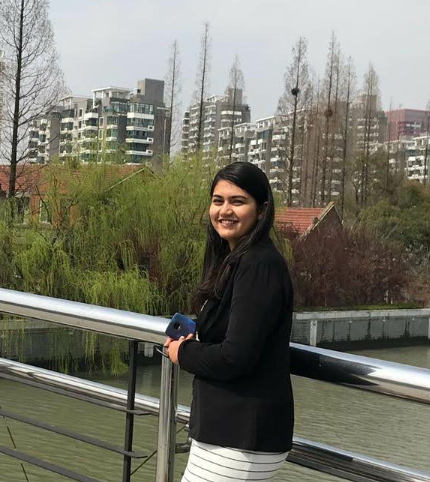Nitya Jain is currently pursuing her Bachelor in Law from Nirma University, Ahmedabad. She is soon to join Shardul Amarchand Mangaldas & Co., AZB & Partners, and Nishith Desai as an Intern in the coming months. Here’s her interview with Desi Kaanoon-
Q. What advice do you have for students wishing to intern in the lockdown? What are the pros and cons of virtual internships?
A. I think interning is the best way to learn groundwork and is extremely enriching. I have continuously interned throughout the lockdown in various firms. I tried my hands at all my interest areas to make an informed choice. Though a virtual internship is not as fruitful as a physical internship because there is a lack of interpersonal connection and court visits, I would still recommend it. An intern must be always available and be responsible for the work, everything else works out well.
Q. You have stood as Quarter-Finalists in the Asia Pacific Rounds of Manfred Lachs Space Law Moot Court and the NLSIU International ADR Competition 2019. How was your preparation like?
A. I’ve always had a passion for mooting right from the start. I think mooting in law school is one of the few things that truly prepares you for the outside world. The core testing of your research skills, reading, communication, interpretation, and ability to handle yourself in challenging situations is what the profession demands of you. I would advise mooters to prepare their case well so that they can be confident that they will face anything that might come their way. Manfred Lachs Space Law Moot Court Competition was my first moot in the 2nd year. It was one of the best experiences of my law school life. Our team stood Finalist in the National Rounds and then went to Australia for the Asia Pacific. I thoroughly enjoyed the journey in my next moot too – Willem C. Vis Commercial Arbitration Moot, Hong Kong. The journey was long but exhilarating. I would recommend mooting to all the law students. ADR Competitions are more about networking and exploring. They are a good way of working on your speaking and social skills.
Q. How did you develop an interest in Commercial Arbitration and Technology Law?
A. I was first introduced to Commercial Arbitration in Willem C Vis Moot, which kept me hooked. Eventually, as I explored areas of laws, I ultimately combined my penchant for AI and law and started reading a lot about technologies, Data protection, Blockchain & AI, etc. My internships and Reliance JIO Info-comm helped me a lot in understanding the practical facets of this area. I think AI is the future for us and in a world of constantly evolving technology and digitalization, the legal profession also evolves and practitioners’ expectations of efficiency. The interplay of dispute resolution and technology shall play a key role in the future.
Q. How has the journey being the Founding Editor of Commercial and Financial Law Reporter been and what do you look forward to?
A. CFLR was launched in October 2019. It was the brainchild of me and my friend&batch mateShubham Gupta. It is a research publication forum wherein students, academicians, and practitioners from different fields of Commercial laws can contribute through their work. The review of blogs and articles is taken up by students and practicing professionals. Our mantra is quality over quantity. Today our team consists of 22 very hardworking and dedicated experts and students. I am overwhelmed by the tremendous response we are getting from the fraternity. Our current debate series has been very well received. There’s still a long way to go, I will continue heading the CFLR team even after my graduation. Overall, my journey has been phenomenal working with some great minds in the legal field.
Q. You have pursued the Core level Programming course on Java and Python, which is a bit different from the regular courses tailormade for law students. Any specific reason for pursuing them?
A. I had a penchant for AI since I was a kid. I always enjoyed coding like an exciting puzzle. As I explored the blend of AI and laws, read about legal tech startups, smart contracts, and whatnot, I thought having good command in this area would be beneficial. I believe coding and law are very similar, granular, intricate, and require problem-solving skills. Coding has helped me a lot at developing logical and sharp thinking. Today there is a huge demand for AI efficient lawyers and keeping yourself updated with the market needs never hurts.

